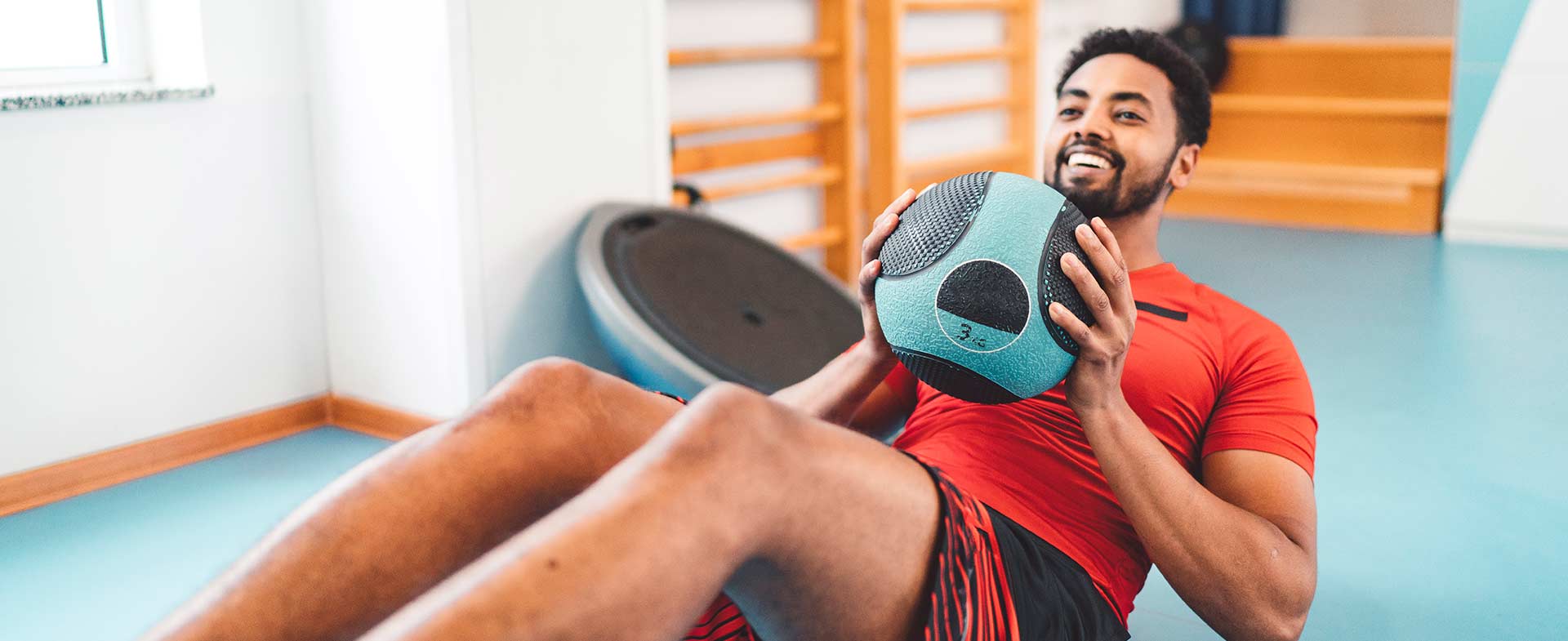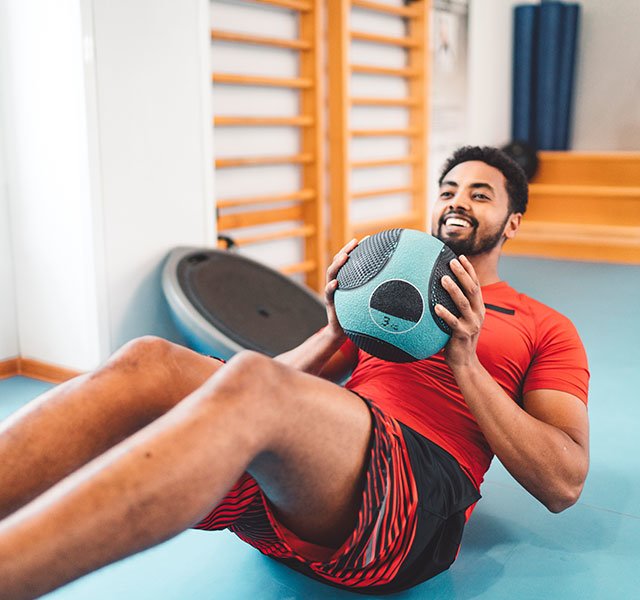Whether you run in health and fitness circles, or you just want to be able to run after your kiddos, developing strong core muscles is critical. If you're a fitness enthusiast, building strong abdominal and pelvic muscles can help you take your workouts to the next level.
"Core strength isn't just about sculpting six-pack abs," says Jennifer Burnham, an athletic trainer at Henry Ford Health. "In fact, a strong core can help with balance and agility, and it can make other strength-building exercises easier to do."
What Are The Core Muscles?
The core muscles include your abdominal muscles, but they also include your low back, glutes and your diaphragm. Basically, any muscles that attach to the pelvis and spine help make up your core. Whether you run, leap, twist or bend, your core muscles have to fire in concert.
"All of the core muscles work together," Burnham says. "They need to be balanced to work efficiently." When one set of muscles that make up the core is weak, the others step in to compensate — and that can set the stage for overuse injuries.
Core muscles include:
- The rectus abdominus: Perhaps the most recognizable of the bunch, the rectus abdominus make up the sculpted six-pack muscles you see on swimsuit models and athletes.
- The obliques: These internal and external muscles run down the sides of your body and allow you to bend, twist and spin.
- The transverse abdominus: Settled beneath the other abdominal muscles, the transverse abdominus is a thick muscle that wraps around your torso like a girdle; it's the set of muscles that keep your core tight and aligned.
Familiarize yourself with each of the muscles that comprise the core and work to strengthen all of them.
How To Build Stronger Core Muscles
The core is the scaffolding where everything begins for both your upper and lower body. So if your transverse abdominus is weak, for example, your body will engage your back muscles to compensate.
"Whether you’re pitching a baseball (which requires rotating your torso) or tossing a volleyball, you need to focus on all of the muscles in your core to avoid recruiting other muscle groups," Burnham says. "Having a strong core allows you to engage those muscles together."
How do you build a stronger core to maximize your performance? Try these strategies:
- Keep it moving. Instead of holding a position to strengthen your abdominal muscles, try dynamic movement. Practicing a plank where you hold your body at the top of a push-up position? Try a plank saw instead, which requires you to shift your weight from your shoulders to your feet. "That type of moving plank causes you to stabilize all of your core muscles at once," Burnham says.
- Take a breath. There's a reason trainers warn against holding your breath during a workout. Your diaphragm is part of your core. "Breathing plays a key role in coordinating all of your core muscles," Burnham says. Take Pilates, for example. That form of exercise strengthens the abdominal muscles, in part because it teaches you to breathe during dynamic movements.
- Pay attention to pain. If you're feeling muscle soreness in areas that you weren't intending to work, it could be an indication that your stronger core muscles are compensating for those that are weaker. So if you do a workout that was heavy on squats, for example, you should feel sore in your glutes, not your back.
- Use a mirror. "Doing core exercises in front of a mirror can help you hone in on the mechanics of the exercise and make sure you're maintaining good form," Burnham says. Not sure what the correct exercise should look like? Consider working with an athletic trainer a strength and conditioning coach for a session or two, so you can see and feel the correct form.
Protect Your Core
Your core muscles are the foundation for activities of daily living. You need them to throw a ball, sit in a chair, even stand on your feet. But for athletes, the core is where you generate power.
"Your core muscles act as a strong foundation to help you jump higher and throw faster," Burnham says. "It also plays an important role in keeping you free of injury." So no matter what your preferred activities, building and maintaining a strong core should be a top priority.
Not sure where to start? Don't be afraid to ask for help from a professional. A personal trainer or an athletic trainer can show you which exercises focus on strengthening your core muscles, and also ensure you have proper form during your workouts.
Subscribe today to receive weekly emails of our latest tips.
To find a doctor or athletic trainer sports medicine specialist at Henry Ford, visit henryford.com or call 1-800-436-7936.
Jennifer Burnham is an athletic trainer who sees patients at the Henry Ford Center for Athletic Medicine in Detroit.



